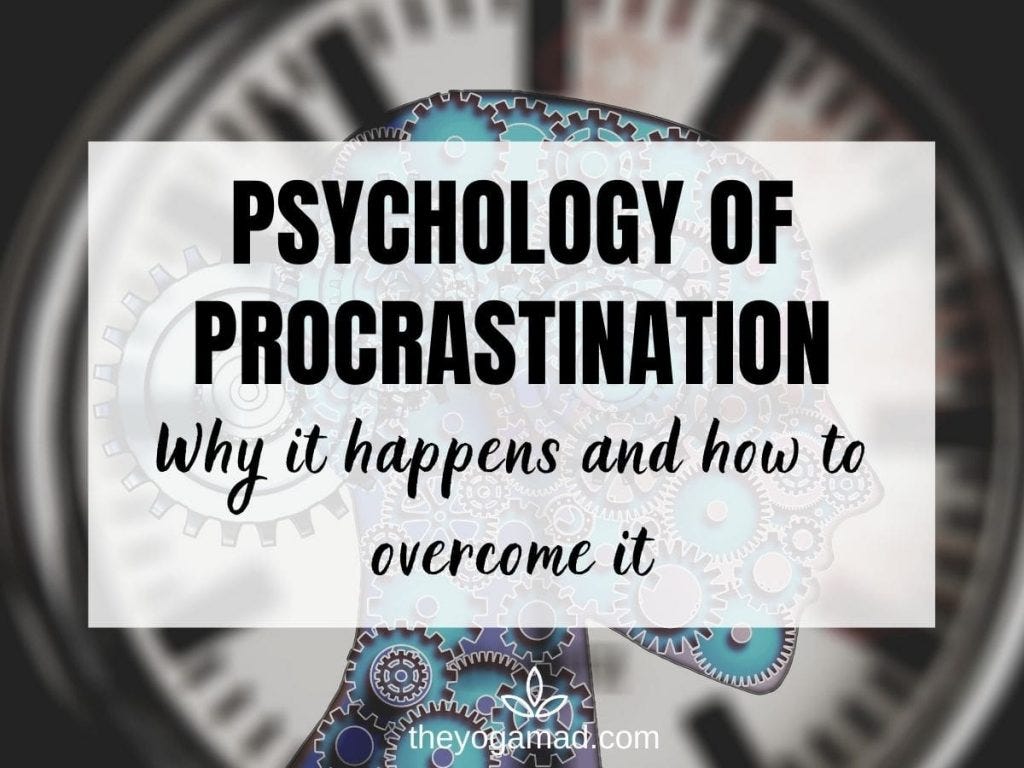Introduction
We’ve all experienced it—the endless scrolling, unnecessary tidying, or binge-watching episodes of a series instead of completing a task that really matters. Procrastination is not simply about poor time management; it’s a complex psychological behavior that affects millions of people worldwide. In this blog post, we dive deep into the psychology of procrastination, uncovering why we delay important tasks and how to effectively conquer this common struggle.
This article covers:
- The science behind procrastination
- Psychological and emotional triggers
- Real-life examples and case studies
- Effective strategies to beat procrastination
- Helpful tools and resources
Let’s begin our journey to understanding and defeating procrastination.
What is Procrastination?
Procrastination is the act of delaying or postponing tasks. But it’s more than just putting things off—it’s the self-defeating behavior of avoiding important responsibilities despite negative consequences.
Types of Procrastination
- Passive Procrastination: Avoidance due to fear or indecision.
- Active Procrastination: Deliberately delaying tasks because you believe you work better under pressure.
While the second type may seem productive, research shows that it often leads to lower performance, higher stress, and poor outcomes in the long run.
The Psychological Roots of Procrastination
1. Fear of Failure
One of the most common reasons we procrastinate is the fear that we won’t succeed. This fear triggers anxiety, which in turn makes us avoid the task altogether. It’s a vicious cycle where the more we avoid, the worse we feel.
2. Perfectionism
Perfectionists often procrastinate because they’re afraid their work won’t meet their high standards. They delay tasks in hopes of achieving the perfect moment or ideal conditions, which rarely occur.
3. Low Self-Esteem
When individuals don’t believe in their abilities, they’re more likely to delay tasks. This lack of confidence stems from negative self-talk and a fear of judgment.
4. Lack of Motivation
Tasks that are boring, difficult, or lack immediate rewards tend to be avoided. Our brains are wired to seek instant gratification, so we naturally gravitate toward activities that offer short-term pleasure.
5. Decision Fatigue
Having too many choices can lead to decision paralysis. When overwhelmed, we delay decisions and responsibilities, opting for easier distractions.
The Science of Procrastination: What Happens in the Brain?
Neuroscience reveals that procrastination involves a conflict between two parts of the brain:
- Limbic System: The emotional, impulsive part seeking immediate pleasure.
- Prefrontal Cortex: The rational, decision-making part responsible for planning and future-oriented thinking.
When the limbic system dominates, we engage in avoidance behavior. Strengthening the prefrontal cortex through mindfulness and discipline can help regain control.
Source: Scientific American on Brain and Procrastination
Real-Life Examples of Procrastination
Example 1: The Student
Maria has an assignment due in five days. Instead of starting now, she spends hours organizing her workspace. As the deadline approaches, she panics and submits subpar work.
Example 2: The Entrepreneur
John wants to launch his online business but keeps postponing tasks like setting up a website or writing product descriptions. His fear of failure and lack of clear direction hold him back.
Example 3: The Working Professional
Sarah delays responding to important emails because she fears making the wrong decision. Her procrastination results in missed opportunities and added stress.
These stories are common and relatable—but change is possible.
How to Beat Procrastination: Proven Strategies
1. Break Tasks into Smaller Steps
Large tasks can feel overwhelming. Break them down into manageable chunks and celebrate small wins along the way.
2. Use the Pomodoro Technique
Work in focused 25-minute intervals followed by a short break. This method boosts concentration and reduces mental fatigue.
Tool: Pomofocus.io
3. Set SMART Goals
Goals should be:
- Specific
- Measurable
- Achievable
- Relevant
- Time-bound
This clarity helps in staying on track and minimizing distractions.
4. Practice Self-Compassion
Be kind to yourself. Understand that everyone procrastinates at times. Guilt and shame only worsen the problem.
5. Eliminate Distractions
Turn off notifications, block social media apps, and create a dedicated workspace.
Tool: Freedom App
6. Visualize the Outcome
Imagine how good it will feel to complete the task. Visualization can be a powerful motivator.
7. Use Habit Stacking
Link a new productive habit to an existing one. For example, after brushing your teeth in the morning, spend five minutes reviewing your to-do list.
Book: Atomic Habits by James Clear
The Role of Environment in Procrastination
Your physical and digital environments play a huge role in your productivity. Clutter, noise, and constant notifications create mental chaos. Design your space to encourage focus.
Optimize Your Environment:
- Use noise-cancelling headphones
- Keep your desk tidy
- Work near natural light
- Use productivity apps and time trackers
Mindset Shifts to Defeat Procrastination
- From Perfection to Progress: Focus on making progress, not being perfect.
- From Fear to Curiosity: See tasks as opportunities to learn, not as threats.
- From Obligation to Choice: Remind yourself why the task matters to you personally.
These shifts foster a healthier relationship with productivity.
The Power of Accountability
Having someone to check in with increases commitment. Find an accountability partner or join a productivity group.
Tool: Focusmate – Virtual coworking sessions with real-time accountability.
When to Seek Professional Help
If procrastination severely impacts your life, consider therapy. Cognitive Behavioral Therapy (CBT) is especially effective in addressing procrastination caused by anxiety or perfectionism.
Resource: Psychology Today Therapist Directory
Final Thoughts
Procrastination is not a flaw in character—it’s a coping mechanism. By understanding the underlying psychology, we can make conscious choices to change our behavior. With the right tools, environment, and mindset, beating procrastination is not just possible—it’s empowering.
Remember: Start small. Stay consistent. Be kind to yourself.




This article provides a comprehensive understanding of procrastination, its causes, and its effects. It explains how fear of failure and perfectionism can lead to avoidance behaviors. The text also highlights the role of neuroscience in understanding procrastination and offers strategies to overcome it. By discussing real-life examples, it makes the concept relatable. How can one effectively break the cycle of procrastination and improve productivity?
Procrastination is such a universal struggle, and this article really breaks it down well. The part about fear of failure resonated with me deeply—it’s amazing how much anxiety can hold us back. I also found the neuroscience angle fascinating; understanding the brain’s role in procrastination makes it feel less like a personal flaw and more like something we can work on. The example about Maria is painfully relatable—how often do we convince ourselves we’re “being productive” when we’re really just avoiding the main task? I wonder, though, what specific strategies would you recommend for strengthening the prefrontal cortex—is it really as simple as mindfulness and discipline? The article mentions organizing as a form of procrastination, but isn’t there a fine line between being organized and being productive? Curious to hear your thoughts on how to balance that. Overall, this was a great read, but I’m left wondering: what’s the first step someone should take to break the cycle of procrastination?